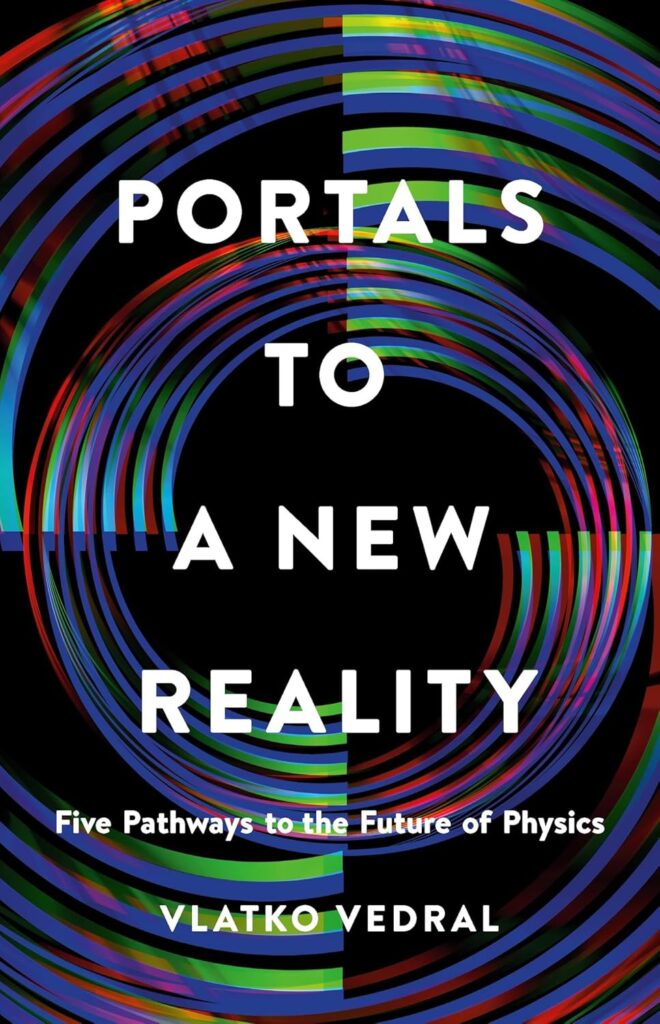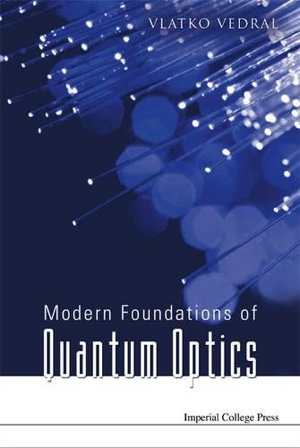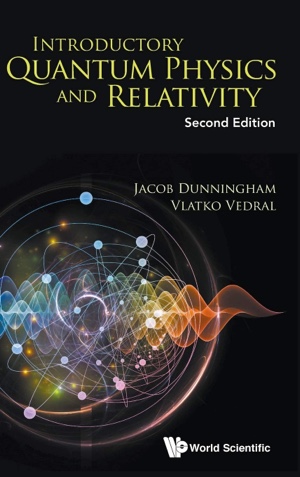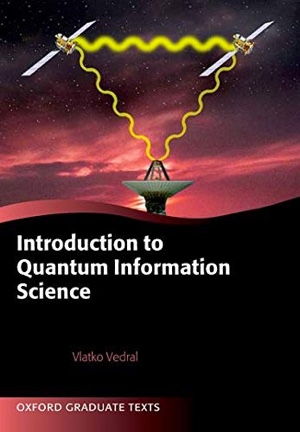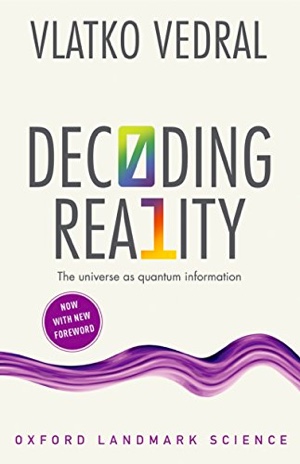Quantum Physics: Consistent and Complete
If you watch various online quantum discussions these days you will most likely hear two statements being repeated frequently. One is that quantum physics is inconsistent. And the other one is that it is incomplete. I’d like to discuss each in turn and convince you that, in fact, neither of them is true.
Let me first be very clear. Neither of the two claims have anything to do with the experimental question of whether quantum physics will ultimately be invalidated and replaced by another, more accurate theory. I personally subscribe to this view myself and only the future experiments will tell us if this will ever happen.
Perhaps quantum physics is the ultimate, perhaps not, but that’s not at stake when people claim inconsistency and/or incompleteness.
First, inconsistency. What it means for a theory to be inconsistent is that there is a way, within that theory, i.e., using its axioms, to prove that something is the case and – at the same time, using another route within the same theory – to prove that that same something is not the case.
For example, if we take the axioms of arithmetic and show, by using some of these axioms, that 2+2 = 4, while, subsequently, we could also prove, with other axioms of the same formulation of arithmetic, that 2+2=5, then this theory of arithmetic would be inconsistent.
No satisfactory theory should logically lead us to conclude that something is and isn’t at the same time. Of course, the usual rules of arithmetic (Peano comes to mind) are perfectly consistent. We will never get two different results for one and the same addition or multiplication even if we execute it in all allowed many different possible ways.
Now, why is quantum physics claimed to be inconsistent? Well, let me do my best to justify this (what I believe to be a false) claim – I have already disclosed that I firmly believe that quantum physics is fully consistent. In almost all such cases the claim is that two or more observers, who are measuring one and the same quantum systems could actually disagree with each other’s observations. The inconsistency would be that by applying quantum physics we could conclude that two observers agree and disagree about their observations at the same time.
This would obviously make no sense. However, some interpretations of quantum mechanics, especially those that view both quantum states and measurements as “subjective” would have us believe that this indeed could be the case. Subjectivity means that I could think that the state of a system is of one kind while you could think that the same systems is in a different state.
However, while it is possible that because we have different amounts of information about the system we assign to it different states, it is not possible that we disagree about our measurement outcomes! Clearly, even classically different information leads to different states. For instance, not knowing anything about the coin you are about to toss, I may think its state is 50/50 heads or tails. You, on the other hand, may have already inspected both sides of the coin, and have seen that it has heads on both sides. Each of us assigns different probabilities simply because you have more information than me.
Ultimately, when you toss the coin, it will always come out heads which you will know in advance, while I may well initially be surprized to see heads come up in 10 consecutive tosses. But, the only relevant point is that neither of us would ever see anything different from each other and sooner or later I would realise that something is funny and that the coin could not be fair after all. My initial assumption was simply incorrect. And that fact that anyone’s assumptions may be incorrect, doesn’t mean that the theory they are using is inconsistent!
The same story is true in quantum physics. We may assign different density matrices to one and the same system, but – when we both measure that very system in the same basis – our measurement results must always agree with each other. You may think that the incoming photon will always be reflected from the beam splitter, while I think it could either be reflected or transmitted. But, once the experiment has happened and the detector for transmission clicks, both of us must see exactly this same detector click. If this was not the case, quantum physics would indeed be inconsistent.
As I mentioned in one of my previous blogs, this statement is true even if you throw in special relativity. You and I could be moving with respect to one another and for you the photon has already therefore been detected, while for me it is yet to enter the beam splitter. This simply means that each of us assigns different states to the photon (your is in one detector and mine is about to be in superposition). However, when in my frame the detector finally clicks, it’s got to be the same as what you – or any other observer in the universe – see. Therefore, there is no inconsistency in quantum physics.
Now, how does one prove that there are no other inconsistencies? Well, I am no mathematician, but this is exactly what mathematical logic is all about. If you can formulate your theory so that you only need to use the basic laws of logical inference to arrive at all the conclusions of your theory, then your theory is consistent simply because you reduced it to the axioms of logic and the axioms of logic are themselves consistent.
It is in this way that quantum physics is as consistent as the classical Newtonian physics. Like the Newton’s three laws of motion, the axioms of quantum physics DO NOT contradict one another.
What about the incompleteness claims? Here we go back to Einstein, Podolsky and Rosen who were the first physicists to argue for incompleteness. The EPR argument is ingenious, albeit wrong. Ironically, it is Einstein’s most cited paper, despite being (or precisely because it is) wrong. What is the gist of the argument for incompleteness (all other such arguments are more or less reducible to the EPR)? Well, quantum physics tells us that the position and momentum of a particles cannot be known at the same time. But EPR, using entanglement, “showed” that one can in fact determine both the position and momentum of one and the same system.
This would indeed demonstrate incompleteness if it were true, because it would show that we can obtain more information about the state of a quantum systems than quantum axioms would have us believe (for the current purposes we can assume that the uncertainty principle is one of the axioms, even though it is not really – it is a theorem, in that it follows from the basic axoims). In that sense, the EPR argued for the existence of local hidden variables. However, everything we’ve done so far tells us that there are no such entities. Not only have they never been seen experimentally, but they would get us in trouble with relativity too! So, the consistency of quantum physics with relativity reassures us that quantum physics is complete!
Of course, what is really relevant is whether quantum physics will be experimentally invalidated in the same manner that classical physics was. For instance, it could turn out that the fundamental particles are not point-like but string-like. The observables of these particles would not then be pertaining to a point (as in our current theory), but would be string-like extended. In other words, they would be non-local.
But none of this would mean that quantum physics is incomplete in the EPR sense. It would simply mean that we have discovered a new fact about the universe. The fundamental entities are spatially extended strings. And this means that we have to change our original axioms in order to factor this in. It means that we need a new theory (string theory?) in order to understand things at this level.
And, we would also want to phrase this new theory so that it is consistent and complete. This is just simple common sense. The new theory would be different to quantum physics, it could allow for more things than quantum physics does (the same way that quantum physics allows us to do more than classical physics), but this would not make it more complete or more consistent than quantum (or classical) physics. It would simply make it a more accurate account of natural phenomena, which is, of course, what physics is ultimately all about.
In conclusion: quantum physics is consistent and complete. Please stop telling us it is not. Just get on with the business of testing it and hope that one day we would be lucky enough to see it fail. But till that time, I myself will firmly remain
Yours truly, a loyal member of the congregation of the Church of the Higher Hilbert Space
QAmen
Sign up to my substack
BOOKS
ASK ME ANYTHING!
If you'd like to ask me a question or discuss my research then please get in touch.

